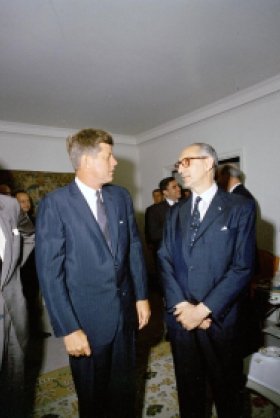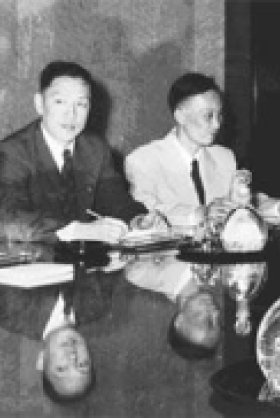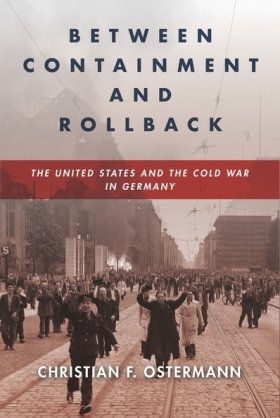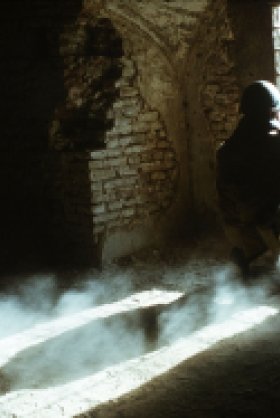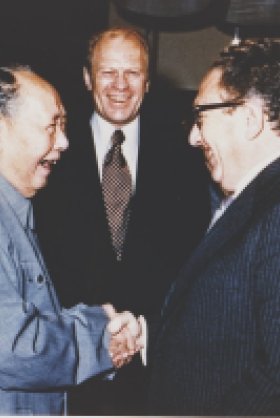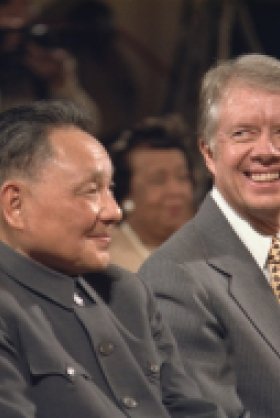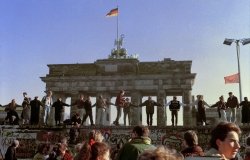Author Charles Gati to Discuss New Book, <i>Failed Illusions: Moscow, Washington, Budapest, and the 1956 Hungarian Revolt</i>
On Tuesday, September 12 from 4:00 - 5:30 p.m., author Charles Gati will discuss his newly released book Failed Illusions: Moscow, Washington, Budapest, and the 1956 Hungarian Revolt. This event is open to the public.
On Tuesday, September 12 from 4:00 - 5:30 p.m., author Charles Gati will discuss his newly released book Failed Illusions: Moscow, Washington, Budapest, and the 1956 Hungarian Revolt
About Failed Illusions (from the publisher)
The 1956 Hungarian revolution, and its suppression by the Soviet Union, was a key event in the Cold War, demonstrating deep dissatisfaction with the communist system and old-fashioned Soviet imperialism. Now, fifty years later, Charles Gati challenges the simplicity of this David and Goliath story in his new history of the revolt. The Hungarian uprising began on October 23rd, 1956. However by Nov. 4th, Soviet tanks and troops had moved into the city, defeating the revolutionaries, who had hoped that NATO (or the United States) would come to their assistance.
Denying neither Hungarian heroism nor Soviet brutality, Failed Illusions: Moscow, Washington, Budapest, and the 1956 Hungarian Revolt (release date: September 12th, 2006) fundamentally modifies our picture of what happened during this 13-day period. The book finds that the young revolutionaries were brave and idealistic but their expectations unrealistic. It reveals that their leader, Imre Nagy, a reform communist who headed the revolutionary government, was uncertain of himself and of the limits of what could be achieved; at the least, he could not rise to the occasion by steering a realistic course between his people's demands and Soviet interests. Gati suggests that had the Hungarians had coupled their valor with pragmatism, some of the revolution's goals could have been achieved.
The United States was all talk, no action, and offered mixed signals at best. It encouraged the revolutionaries with promises of "liberation" and the "rollback" of Soviet power from Eastern Europe, while American-run Radio Free Europe simultaneously backed the insurgents' excessive demands and opposed Nagy. The book exposes Washington's ambivalence by citing Vice President Nixon, who said at a top-secret NSC meeting in July 1956 that "it wouldn't be an unmixed evil" for the U.S. if the Soviets were to invade Hungary. (Interestingly, the CIA had only one officer in Budapest, and it did not have a single Hungarian-speaking agent in Austria.) There was, to put it mildly, a gap between words and actions in U.S. policy.
One wonders why the U.S. and its allies did not encourage the Hungarian revolutionaries to pursue more constructive options that were available, such as the more limited goal of Titoism as a first step toward freedom. NATO could have pressed the issue with the United Nations before, and not after, the Soviet crackdown. There are valuable lessons here for our efforts to "democratize" or reshape distant lands.
Failed Illusions is based on extensive archival research, including the CIA's operational files and transcripts of Radio Free Europe's broadcasts, as well as interviews with participants in Budapest, Moscow, and Washington. The book relates new facts in a political thriller that combines the immediacy of a young eyewitness (the author was a 22-year-old reporter in Budapest during the uprising) with the experience and expertise of a scholar. As Gati remarked in a recent op-ed, "The Hungarians need to hear what happened 50 years ago -- and Americans need to hear that in the future we will not say we seek clearly unattainable goals abroad for political ends at home."
Charles Gati is a political scientist who fled his native Hungary during the 1956 revolt, and is now Senior Adjunct Professor of European Studies at Johns Hopkins University. His previous positions have included teaching Central and Eastern European as well as Russian politics and foreign policy at Union College and Columbia University. He served as a Senior Adviser on the Department of State's Policy Planning Staff in the early 1990s. His publications include The Bloc That Failed: Soviet-East European Relations in Transition (1990), and Hungary and the Soviet Bloc (1986).
Congressman Tom Lantos has served as a Member of the United States Congress since January 3, 1981. He is currently serving his 13th term in the House of Representatives.
Lantos was born in Budapest in 1928 and was 16 years old when Nazi Germany occupied his native country. As a teenager, he was a member of the anti-Nazi underground and later of the anti-Communist student movement. He is the only holocaust survivor ever to serve in the US Congress. Tom was awarded an academic scholarship to study in the United States in 1947, and later earned a PhD in Economics from the University of California, Berkeley.
For three decades prior to his service in Congress (1950-1980), Lantos was a professor of economics, an international affairs analyst for public television, and a consultant to a number of businesses. He also served in senior advisory roles to members of the United States Senate.
As the Ranking Democratic member of the House International Relations Committee, Lantos has been an advocate for strong international involvement, participation in international organizations, and human rights. In 1983 he was the founder of the Congressional Human Rights Caucus, and he continues to serve as its Co-Chairman.
James G. Hershberg directed the Cold War International History Project from 1991-96 before moving to George Washington University in 1997. He now edits the CWIHP book series co-published by the Stanford University and Wilson Center Presses. He is the author of James B. Conant: Harvard to Hiroshima and the Making of the Nuclear Age (Knopf, 1993; Stanford University Press, 1995), a study of the former Harvard president, atomic bomb project administrator, diplomat, and educational commentator. He received the 1994 Stuart Bernath Prize from the Society for Historians of American Foreign Policy. Other scholarly and popular articles have focused on topics related to the Cold War and nuclear history such as the Cuban Missile Crisis, the Vietnam and Afghanistan Wars, the Iran-contra affair, and revelations from the communist archives. He received an AB in American History from Harvard College in 1982; a Master of International Affairs from Columbia University in 1985; and a PhD from Tufts University in 1989.
Related Links
Related Programs

Cold War International History Project
The Cold War International History Project supports the full and prompt release of historical materials by governments on all sides of the Cold War. Through an award winning Digital Archive, the Project allows scholars, journalists, students, and the interested public to reassess the Cold War and its many contemporary legacies. It is part of the Wilson Center's History and Public Policy Program. Read more

History and Public Policy Program
The History and Public Policy Program makes public the primary source record of 20th and 21st century international history from repositories around the world, facilitates scholarship based on those records, and uses these materials to provide context for classroom, public, and policy debates on global affairs. Read more
